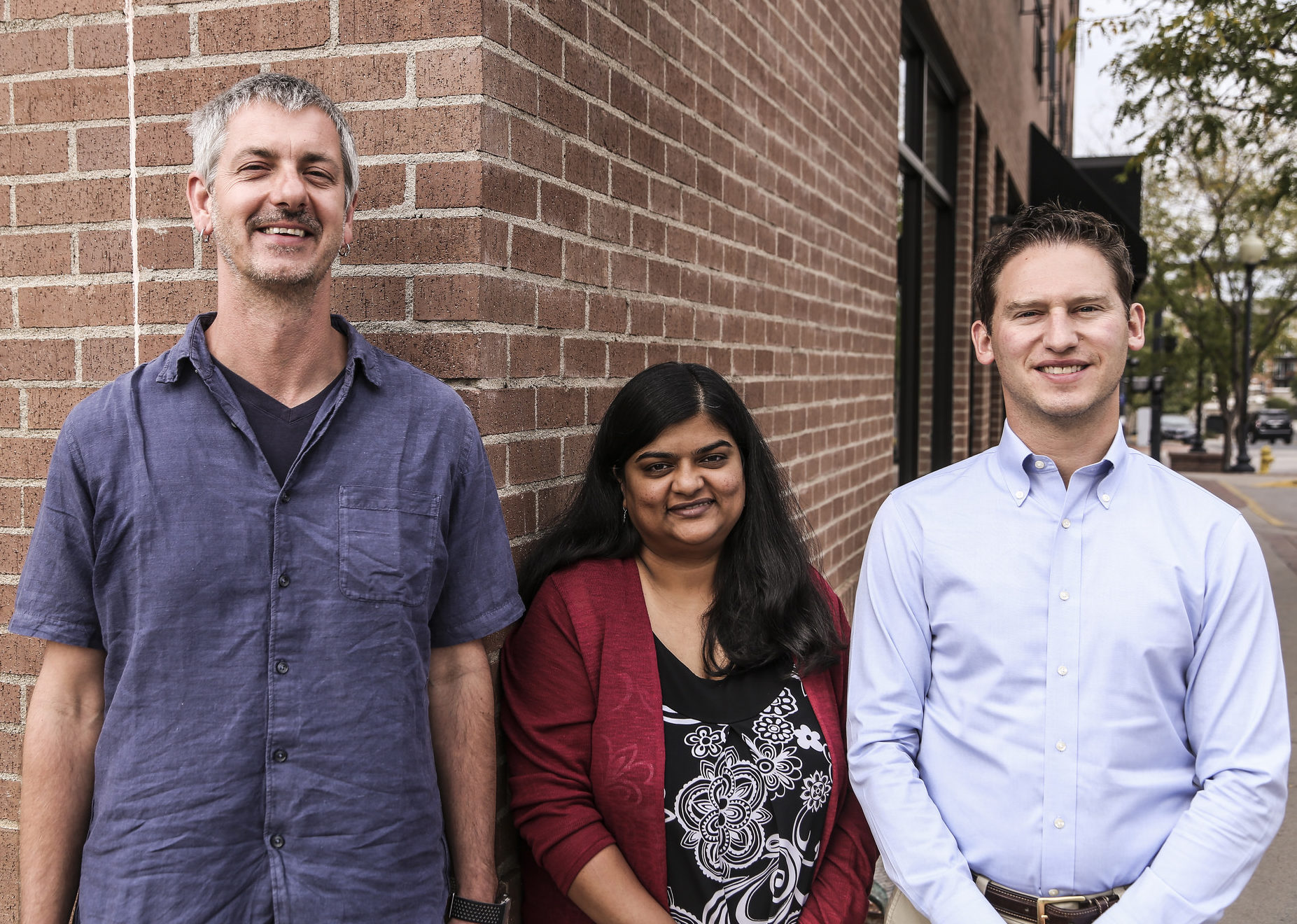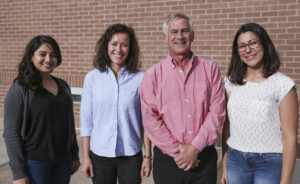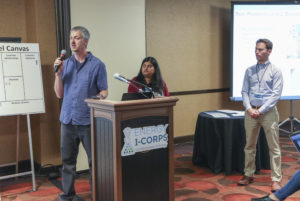
Energy I-Corp team Fermley members (from left): Marcin Joachimiak (KBase/EGSB), Deepti Tanjore (BSE), and Eli Groban of Autodesk.
Two teams of Biosciences researchers participating in cohort eight of the U.S. Department of Energy’s I-Corps program presented their projects during the opening session held October 1–5 in Golden, Colorado. The intensive two-month training program pairs national laboratory researchers with industry mentors; through lectures, workshops, and weekly webinars, teams define technology value propositions, conduct customer discovery interviews, and develop viable market pathways for their technologies.
One team, calling itself Fermley, is led by Deepti Tanjore, a research scientist in Biological Systems and Engineering (BSE), with entrepreneurial lead Marcin Joachimiak, a computational biologist with KBase in Environmental Genomics and Systems Biology (EGSB), and industry mentor Eli Groban, director for life sciences at Autodesk. The team is developing a means to increase by five times the number of process development studies that can be conducted with the same resources.
Typically, technologies aimed at engineering microorganisms to manufacture precursor molecules used in the production of biofuels, biochemicals, and other bioproducts are developed in test tubes or small flasks. However, for commercial production, these technologies have to perform well in large reactors with volumes over 100,000 liters. Complicating matters, a given microbial culture may perform differently in a bioreactor than it does in a flask of the same volume.
So, as an intermediate step, scientists often have to re-optimize their technologies in 1-liter or 2-liter bioreactors. This step, called process development, can be time and resource consuming. As such, researchers are not able to perform many studies and have to extrapolate results, which means taking on more risk when moving from pilot scale to commercial production. By increasing the number of studies that can be conducted, Tanjore and Joachimiak aim to reduce this risk.

Energy I-Corp team EcoPod members Vega Shah, Esther Singer, and Cinta Gomez Silvan with Mike McCourt of McCourt Associates LLC.
The second team, led by Esther Singer, a research scientist at the Joint Genome Institute (JGI) with a secondary affiliation in EGSB, includes entrepreneurial leads Cinta Gomez Silvan, a guest postdoctoral fellow in EGSB, and Vega Shah, a postdoctoral fellow in Singer’s group, with Mike McCourt, McCourt Associates LLC, serving as industry mentor. The team is developing pilot-scale ecosystems—called EcoPods—designed to bridge the gap between lab-scale experiments that are too small to capture real-world complexity and field-scale experiments that can’t be carefully controlled.
EcoPods are enclosed environments, several cubic meters in size, that allow direct and intensive monitoring and manipulation of reciprocal interactions among plants, soil, microbes, and atmosphere over the complete plant life cycle. They will be equipped with climatic controls to modulate temperature, humidity, and other important environmental parameters, as well as sensors capable of tracking soil moisture, oxygen, and specific nutrients. In addition, the output from these sensors will be integrated using computer models to provide a coherent understanding of the environment inside the EcoPod. By creating multiple EcoPods, the team’s goal is to allow scientists to examine the impact of differences in types of soils, microbes, and plants on ecosystem health.
Energy I-Corps is an initiative of the DOE Office of Energy Efficiency and Renewable Energy Technology-to-Market Program and is managed by DOE’s National Renewable Energy Laboratory. Applications for cohort nine are currently being accepted; training will begin in spring 2019.





